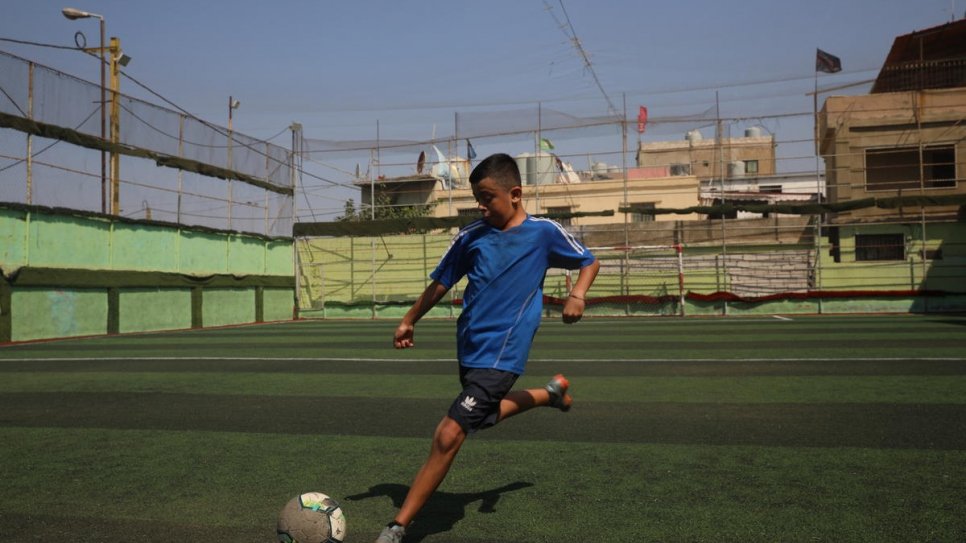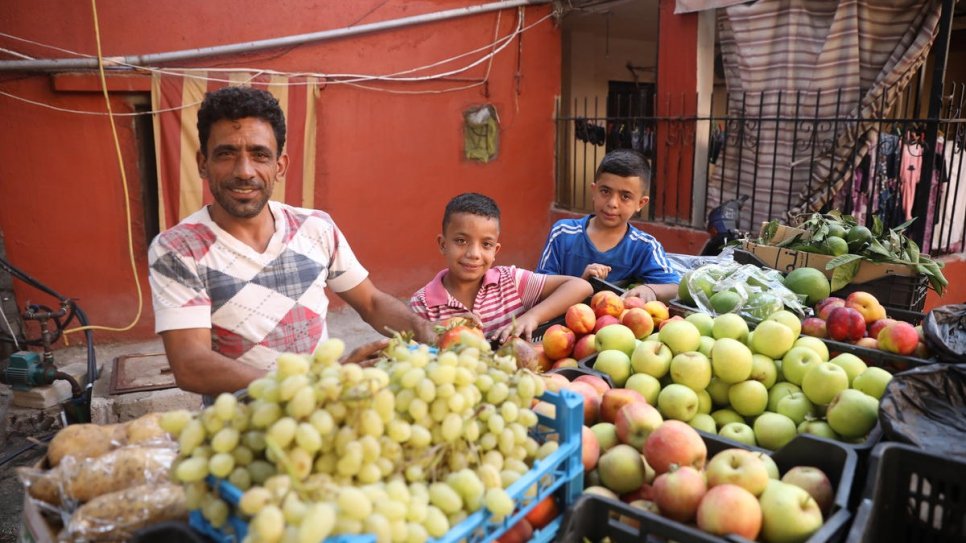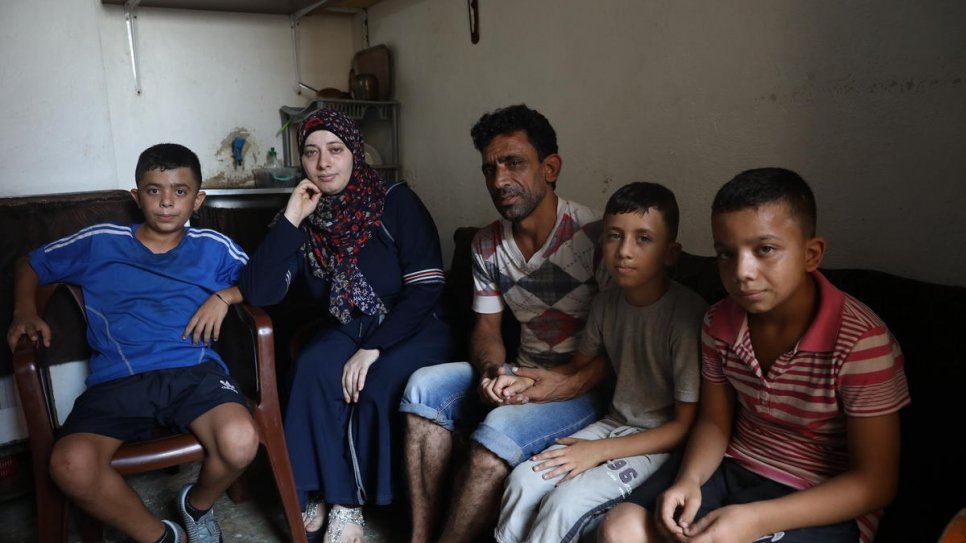New life in Spain a dream come true for Syrian Real Madrid fan
After his family fled Syria, football-mad Ghaith had to drop out of school in Lebanon to help his family earn enough to get by, before getting the chance of a new start in Spain.
Syrian refugee Samer and his sons Ghaith (in blue) and Mohammed pictured in Beirut, Lebanon, in September ahead of their resettlement to Spain.
© UNHCR/Houssam Hariri
Like many boys his age, 13-year-old Ghaith is obsessed with football, and in particular his favourite team Real Madrid. He has often asked his father Samer if they could one day visit the team's famous home stadium, Santiago Bernabéu, located in the Spanish capital.
But as Syrian refugees living in an impoverished neighbourhood of the Lebanese capital Beirut, with Samer barely earning enough from selling vegetables to keep a roof over their heads, he did not want to give his eldest son false hope.
“I would tell him: ‘it is an impossible dream for us to go to those countries’,” Samer said.
But when Samer’s family was identified by UNHCR, the UN Refugee Agency, for resettlement to a third country due to multiple vulnerabilities including children out of school, the chance of a brighter future opened up.
Following several interviews, by UNHCR and the Spanish authorities, they were told they had been accepted for resettlement to Spain.
"I feel like we have been reborn."
The family recently flew to Madrid as part of a group of Syrian refugees whose resettlement to Spain had been put on hold due to the COVID-19 pandemic.
“I feel like we have been reborn,” Samer said shortly before their departure. “Here, life was very difficult and we had to compromise our children’s education and struggle every day to survive, but now we have been given a new chance.”
Resettlement represents a vital, and at times truly lifesaving solution for some of the world’s most vulnerable refugees who face threats to their safety, freedom and wellbeing in their country of asylum, whether due to lack of status or residency, extreme poverty, illness, child labour or other protection concerns.
At the same time, the chance of a fresh start in a new country is only open to a small fraction of those in need. Out of more than 20 million refugees under UNHCR’s mandate, around 1.4 million are assessed as being in need of resettlement, while only around 7 per cent end up getting that chance.
The number of refugees resettled has dwindled even further during the COVID-19 pandemic, with many receiving countries closing their borders to contain the spread of the virus or reducing the number of resettlement places available.
For Samer, the chance to start over in Spain is a blessing after years of hardship since fleeing to Lebanon in fear of his and his family’s lives at the start of the Syria crisis in 2011.
Originally from Idlib in northwestern Syria, Samer received death threats against himself and even Ghaith, then just four years. “We fled a war, a country in conflict. It was exhausting,” he said. “They said: ‘if you don’t leave today, we are going to kill your little child’.”
Together with Ghaith, his wife Ghada and their two other sons Mohammad and Jamil, they arrived in Lebanon and settled in a poor neighbrouhood in south Beirut.
Samer, who suffers from an injured back and poor eyesight, decided to sell vegetables in their area from a rented three-wheeled cart that he and his sons pushed around the streets.
"I want to build a new, dignified life."
“Sometimes I make a profit and sometimes I lose [money], but we collected the rent bit-by-bit,” he explained. “I chose this business because at the end of the day you can eat whatever is left over.”
His sons used to help him push the cart and make deliveries in the morning before going to school in the afternoon. But as their financial situation deteriorated, they would work longer hours and often be late for lessons. Eventually, the boys dropped out altogether.
“I have failed my kids in regard to education,” Samer said. “Many times, we missed the [start] of school so they would skip going, but it was against my will – we had to do that.”
“I want to build a new, dignified life and better future for them,” he added. “It’s like raising them again in better conditions, because here life wasn’t fair to them, but we had to survive this way.”
See also: Syrian family awaits end of lockdown to start new life in Norway
Ghaith is looking forward to resuming his education and playing football in Spain, and finally seeing where his favourite team play. His youngest brother Jamil, 10, has already learned several words of Spanish, and 12-year-old Mohammad is saying how much he is looking forward to going back to school.
“I hear that Spain is beautiful,” Mohammad said. “I want to go to school, make friends and become a doctor or an engineer.”
Although Samer is aware there will be challenges in adapting to life in a new country, he is excited by the opportunity and ready to work hard to give his family the chance at a new start.
“I want to open a shop and develop a business … I don’t like sitting at home; I love working,” Samer said. “What may be difficult is moving to a new community with a new language you must learn, but when you have a goal in mind nothing is too difficult. The will I have to [make] a better future for us is stronger than all challenges.”



